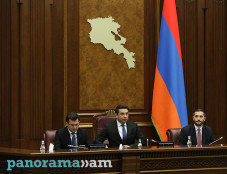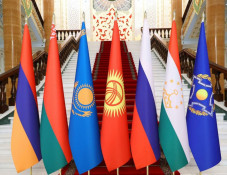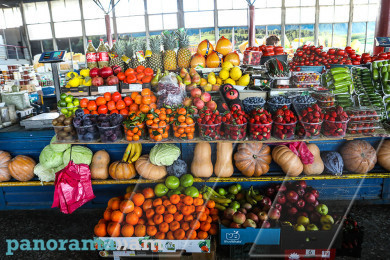
Analyst: South Caucasus becoming another front against Russia
Statements on a possible corridor through Armenian territory were made by two superpowers in the past 24 hours.
At a meeting with Armenian Prime Minister Nikol Pashinyan on Tuesday, Iran’s Supreme Leader Ayatollah Ali Khamenei reaffirmed Tehran’s strong opposition to a land corridor through Armenia that would link Azerbaijan to Nakhichevan.
“Iran considers the Zangezur corridor to be detrimental to Armenia's interests," the supreme leader said.
Speaking at a Senate committee hearing, U.S. Assistant Secretary of State for European and Eurasian Affairs James O'Brien said, “The only options of the Central Asian countries to global markets are through Russia or China. If we can open up a route that goes through Azerbaijan and Armenia, they will have access to global markets and much less dependence on Russia and China.”
Panorama.am on Wednesday reached out to Sergei Melkonian, a research fellow at the Applied Policy Research Institute (APRI Armenia), for comment on the statements by the top Iranian and U.S. officials.
“Everyone realizes that there is an ongoing war between Russia and the West. The South Caucasus was of paramount importance for Russia to ensure its security and resolve other issues. It’s now turning into another front against Russia after Ukraine. Different experts have talked about it, but it’s the first time that a senior official has announced it,” the analyst said, adding that O'Brien’s statement was nothing new.
He claims that the U.S. supports Armenia in exchange for the country’s anti-Russian policy. “When Armenia stops this policy, it will get less assistance and will face pressure, as it’s the case with Georgia,” the analyst said.
“Now Armenia has two options: the country has to either follow the American scenario or reject it. The current steps indicate that Armenia is ready to go for it. Everyone understands that the regional countries are becoming a tool against Iran and Russia. Today’s decision-makers need to say whether it coincides with Armenia's interests or not.
“As an expert, I believe that extra-regional forces come and go, but you can't change the geography. When you have two borders, one of which – the border with Iran – plays a vital role, it opens up an opportunity for cooperation with India and Arab countries. I don’t think taking steps detrimental to the neighboring country, thanks to which Syunik is still Armenian, would be a very smart choice,” Melkonian said.
Related news
Newsfeed
Videos






























